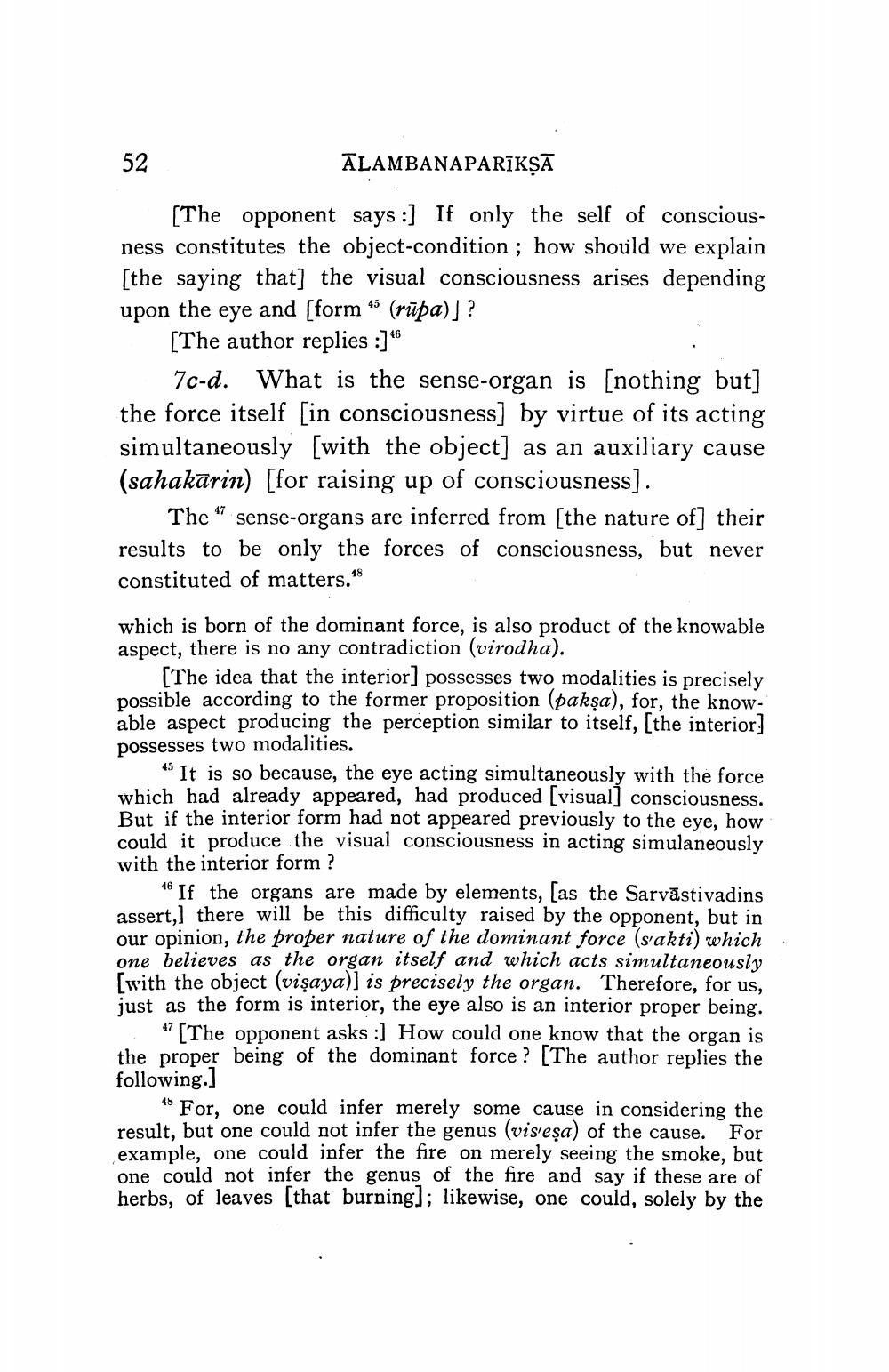________________
52
ĀLAMBANAPARĪKSĀ
[The opponent says :) If only the self of consciousness constitutes the object-condition ; how should we explain [the saying that] the visual consciousness arises depending upon the eye and [form “ (rūpa)] ?
[The author replies :)
7c-d. What is the sense-organ is [nothing but] the force itself (in consciousness] by virtue of its acting simultaneously [with the object] as an auxiliary cause (sahakarin) [for raising up of consciousness).
The sense-organs are inferred from [the nature of] their results to be only the forces of consciousness, but never constituted of matters. 48
which is born of the dominant force, is also product of the knowable aspect, there is no any contradiction (virodha).
[The idea that the interior] possesses two modalities is precisely possible according to the former proposition (pakşa), for, the knowable aspect producing the perception similar to itself, [the interior possesses two modalities.
45 It is so because, the eye acting simultaneously with the force which had already appeared, had produced [visual] consciousness. But if the interior form had not appeared previously to the eye, how could it produce the visual consciousness in acting simulaneously with the interior form?
46 If the organs are made by elements, (as the Sarvāstivadins assert,] there will be this difficulty raised by the opponent, but in our opinion, the proper nature of the dominant force (sakti) which one believes as the organ itself and which acts simultaneously [with the object (vişaya)] is precisely the organ. Therefore, for us, just as the form is interior, the eye also is an interior proper being.
7[The opponent asks :) How could one know that the organ is the proper being of the dominant force ? [The author replies the following.]
46 For, one could infer merely some cause in considering the result, but one could not infer the genus (viseşa) of the cause. For example, one could infer the fire on merely seeing the smoke, but one could not infer the genus of the fire and say if these are of herbs, of leaves [that burning); likewise, one could, solely by the




